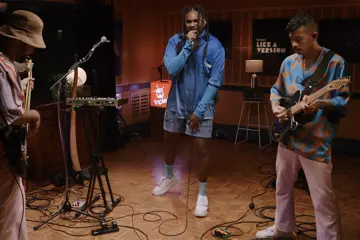 AI Music
AI MusicFor those hoping to see the rise of generative AI take over the music industry, we have some bad news (and it’s not just that you’re the human embodiment of abject stupidity) – all of the biggest heavy hitters in the business are taking steps to fight against it.
Case in point: the Recording Industry Association of America (RIAA) has launched two new copyright infringement lawsuits against AI-based music services Suno and Udio, alleging they unlawfully used copyrighted sound recordings from all of the “big three” major labels – Universal Music Group (UMG), Warner Music Group (WMG) and Sony Music Entertainment (SME) – to train their generative AI models.
As reported by Digital Music News, the RIAA views these as “landmark” cases, marking “a significant step in protecting artists’, songwriters’, and rightsholders’ control over their works in the rapidly evolving landscape of AI technology”. The trade group’s clients have reportedly vouched that Suno and Udio both “copied and exploited countless sound recordings without permission, spanning various genres, styles, and eras”.
On behalf of UMG, WMG and SME, the RIAA seeks to obtain declarations of infringement, injunctions to prevent future infringement, and damages for past infringements.
In a statement published by Digital Music News, RIAA Chairman and CEO Mitch Glazier stressed that neither he, his board, or the major labels it represents are against the use of AI in their operations – but when it comes as the expense of rightsholders, action needs to be taken. “The music community has embraced AI,” he said, “and we are already partnering and collaborating with responsible developers to build sustainable AI tools. But we can only succeed if developers are willing to work together with us.”
Don't miss a beat with our FREE daily newsletter
The sentiment was furthered by the RIAA’s Chief Legal Officer, Ken Doroshow, who offered in a statement of his own: “These lawsuits are necessary to reinforce the most basic rules of the road for the responsible, ethical, and lawful development of generative AI systems and to bring Suno’s and Udio’s blatant infringement to an end.”
In their report, Digital Music News noted that executives acting on behalf of The Recording Academy, A2IM, SoundExchange, SONA, the NMPA “and others” all backed the RIAA in its filing of these lawsuits, throwing their support behind “the importance of fair compensation, respect for artists’ rights, and the ethical use of AI technology”.
Both filings are available to view online – see here for the filing made against Sudo, and here for the one made against Udio.
Elsewhere in the music industry, AI has begun massively taking over streaming services. At Spotify, for example, a suite of AI tools have been implemented; in April, the platform began beta testing an AI feature allowing Premium subscribers to create their own themed playlists, joining similar AI-based features like the Daylist, Song Psychic and DJ.
Artists themselves have also had strong opinions on AI tech. Back in April, Pink Floyd spurred controversy when they awarded £100,000 to a fan who had entered their music video competition using clips generated by an AI program. James Blunt also stated recently that he was “humiliated” and “mortified” by an AI version of his music, while Nick Cave called an AI song based on his style “bullshit” and criticised it as being a “grotesque mockery of what it is to be human”.
















